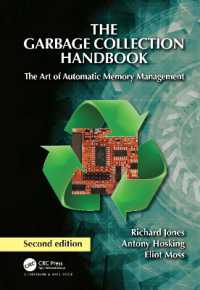Full Description
Outsiders have construed Pitcairn and Norfolk Islands as isolated natural laboratories since the 19th century. The islands' inhabitants, descended from the 18th-century mutineers of the British naval vessel Bounty and their partners from Tahiti, Tubuai, Huahine, and Raiatea, have long been idealized by investigators as incomparable research subjects, uniquely suited for the study of racial, cultural, and linguistic "hybridity." But how did these two Pacific islands come to be seen as natural experiments in the first place? How was that idea shaped and contested in encounters between knowledge makers and the people they studied? And how can we dismantle the myth of the Pacific Island as human laboratory today?
The Myth of the Natural Laboratory answers these questions by tracing two centuries of interest in both of these communities. Across chapters on sailors, colonial administrators, anthropologists, historians, and linguists, it critically historicizes the trope of the island as laboratory and argues for more critical examination of colonial science's reliance on Indigenous subjects. Over time, Pitcairn and Norfolk Islanders became, on a per capita basis, among the most studied people on earth, often subject to dozens of investigations across their lifetimes—to the point that they were sometimes accused by their investigators of being more expert in "fieldwork" than the fieldworkers who came to study them. They inflected the ways investigations proceeded on both islands and leveraged the interest in their communities to stake their own claims and produce their own counternarratives.
Almost without exception, researchers failed to acquire or produce the knowledge they sought. This book suggests that far from becoming ideal natural experiments producing easily accessible knowledge, both islands ultimately became sites of "epistemic derangement," places where attempts to produce knowledge were halted, redirected, or reconfigured. Bringing recent conversations on imperial anxiety to bear on questions of science and empire, The Myth of the Natural Laboratory studies these fractures and failures to produce knowledge, showing the ways colonial paranoias and colonial histories unsettled studiers' practices, categories, and assumptions.







